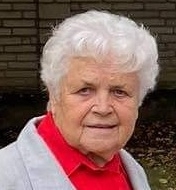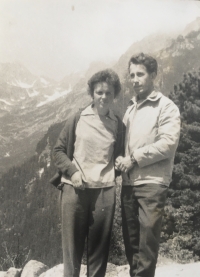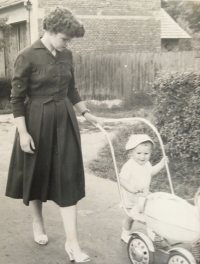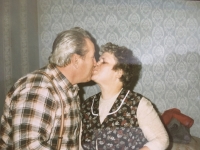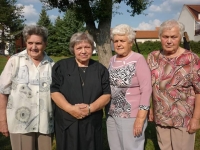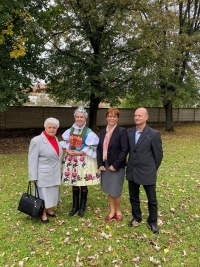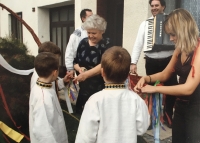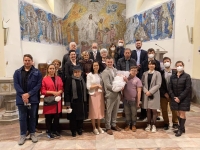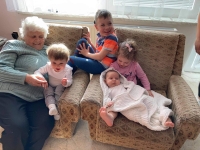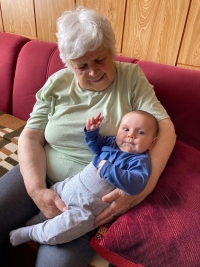The dawn was breaking; people were praying the rosary and music suddenly started to play

Stáhnout obrázek
Anežka Hurbišová, née Miškárová was born on 26 February 1939 in Nivnice in the area of Uherský Brod. She had seven siblings, her parents Anežka Miškárová and Karel Miškár earned their living by farming. The witness grew up in a strongly religious family, her cousins Josef Hladiš and Stanislav Hrašák were ordained priests. Her father farmed privately at the time of collectivization until 1960. As a daughter of a private farmer, Anežka had an unfavourable cadre profile, and when she finished the town school and a one-year training, she was not admitted to a Secondary Business School where she wanted to study. She found a job at a state farm, and she later studied for two years at the Secondary School of Agriculture. She did not finish her studies because she contracted typhus and for most of her life, she worked as a crane operator in Slovácké Machine Works where also military manufacturing took place - pontoons and components of the Tamara radio-technical searchlight (were made there). She took care of her husband Jaroslav who got seriously ill when he was forty for thirty years. Together with several citizens of Nivnice, she took part in a pilgrimage at Velehrad in 1985 and she also participated in a post-revolutionary meeting at the same place with the then Pope John Paul II.
